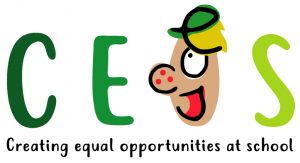Creating equal opportunities in education by means of academic language.
Pupils from a less advantaged background, such as a low socioeconomic status or a native language other than Dutch, do not always fulfil their potential in terms of academic success. The project ‘Creating equal opportunities at school: Empowering pupils from less-advantaged backgrounds through teaching academic language’, financed by Erasmus+, contributes to bridging the gap between these pupils’ current academic success and their cognitive talent by means of teaching Dutch academic language. Bureau Talent is the project leader and the Centre for Psychological Assessement (Dr. Marlies Tierens & Caroline Dejonghe, Thomas More Antwerp) participates in the research team, together with Prof Dr. Lianne Hoogeveen and Birgit Broekhoven.
The results of the project have been published here.
Inequality in education is a big problem in every prosperous country. The Netherlands and Belgium even belong to the 10 countries in the world where socioeconomic status has the biggest impact on school success[1]. Socioeconomic status is the position people have in society. Examples of indicators that are used to measure socioeconomic status for children are: the language spoken at home and the income, professional status and educational level of their parents[2]. Inequality in opportunities means that background and socioeconomic status, instead of cognitive or academic abilities, determines academic success[3]. Language seems to play an important role in this.
It is essential that schools, pupils and parents become aware of this problem. Also, they should know where to find and how to make use of the learning materials that are available to teach pupils ‘school language’, also called academic language. The project ‘Creating equal opportunities at school: Empowering pupils from less-advantaged backgrounds through teaching academic language’, financed by Erasmus+, offers a solution. The purpose of this project is to improve the academic language skills of cognitively talented pupils from less advantaged backgrounds. It aims to increase the chance that these pupils’ academic success is in line with their potential because language is no longer a barrier, leading to a growth in their motivation and self-confidence.
Different experts and schools from the Netherlands, Belgium and the UK are working together in this project, benefiting from each other’s experience and expertise. A similar project, which served as an example for this current project, has been carried out in the UK. It was called the REAL-project[4], and the results were very positive.
The first step in the Erasmus+ project is to select cognitively talented pupils from a less-advantaged background through a culture fair test. The 10% to 20% of best scoring pupils per school will start working with the Dutch academic words in September 2019. The project ends in June 2021, after which it will be evaluated.
The selected pupils will use on online programme to help them learn academic Dutch. Teachers and experts have worked together to compile a list of academic words, based on previously developed lists. The online programme allows pupils to actively study and use the words. The aim is that they will be able to recognize and use academic language in formal school settings as well as in their everyday lives so that a lack of language skills no longer forms a barrier when it comes to academic success.
The project is innovative because this is a target group which is underrepresented in many Gifted-and-Talented programmes. The way pupils are selected and the development of an academic word list in Dutch is also new. From a broad perspective, the end goal should be that the influence of socioeconomic status on talent development, school results and school success will diminish. This fundamental change could ultimately lead to a more diverse and equal society.
[1] UNICEF Office of Research (2017). Building the future: Children and the sustainable development goals in rich countries. Opgehaald van https://www.unicef-irc.org/publications/pdf/RC14_eng.pdf
[2] Inspectie van het Onderwijs (2016). De staat van het onderwijs [Onderwijsverslag 2014/2015]. Opgehaald van https://www.onderwijsinspectie.nl/documenten/publicaties/2016/04/13/staat-van-het-onderwijs-2014-2015
[3] Onderwijs in Cijfers (2018). Eindexamens voortgezet onderwijs 2016/2017. Opgehaald van https://www.onderwijsincijfers.nl/kengetallen/vo/leerlingen-vo/prestaties-eindexamens
[4] http://www.realproject.org.uk/


Interessante berichten
VAPH hecht groter belang aan betrouwbaarheidsinterval bij IQ-bepaling
Begin dit jaar kwam het Kwaliteitscentrum Diagnostiek naar buiten met een nieuw classificerend diagnostisch protocol voor een verstandelijke handicap. Dit…
Lees meerHet ene IQ is het andere niet
Het IQ is de oudste en meest gebruikte psychologische maat om het cognitief functioneren van mensen uit te drukken. Intelligentietests…
Lees meer